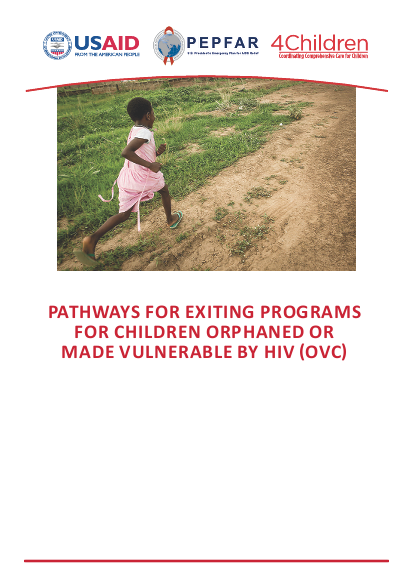
PEPFAR’s Orphans and Vulnerable Children (OVC) programming delivers child-focused, family-centered interventions that seek to improve well-being and mitigate the impact of HIV and AIDS on children and families. Interventions are time-limited, based on assessed need, and intended to build resiliency and improve the capacity of families to care for children. Therefore, as part of an integrated approach to OVC programming, enrolled children and families should be supported to achieve a degree of self-sufficiency and independence whenever possible. That is, caregivers should be able to meet the basic needs of the children in their care, including children living with HIV, and be able to provide a safe and healthy environment for children affected by HIV without direct project support. This is the ultimate goal of OVC programs and should help to inform the goals or objectives outlined in case plans for children and families enrolled in OVC programs. Shortly after enrollment, OVC programs should assess the needs and resources of children and families, work together to establish specific, realistic goals, and plan actions to achieve goals, support children and caregivers to implement plans, and monitor the completion of actions and progress toward achieving goals. Plans should outline concrete actions for facilitating the successful exit of children and families from OVC programming, including benchmarks for assessing readiness to exit.